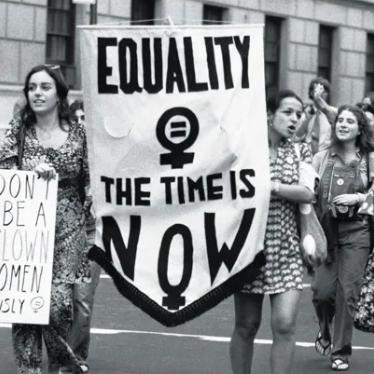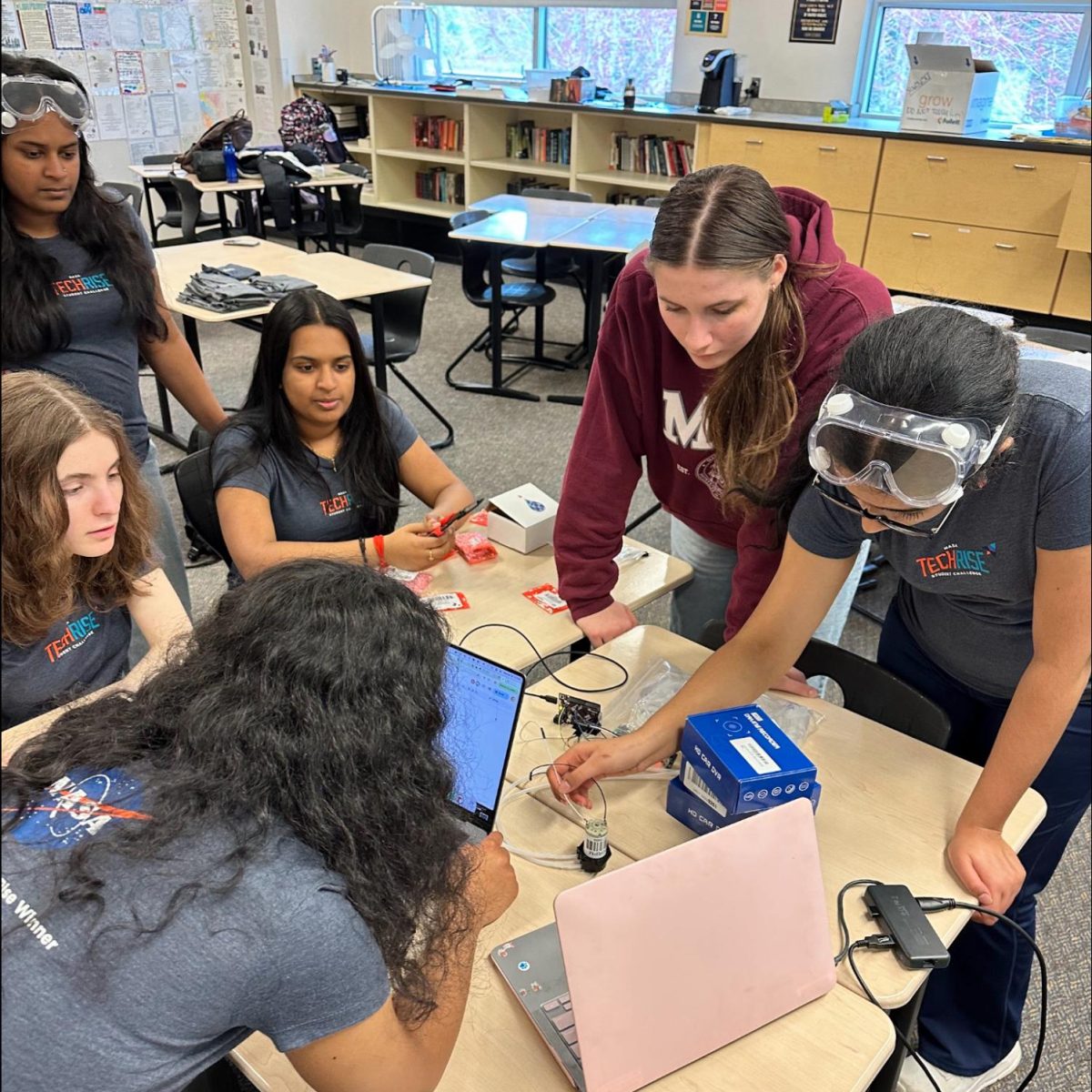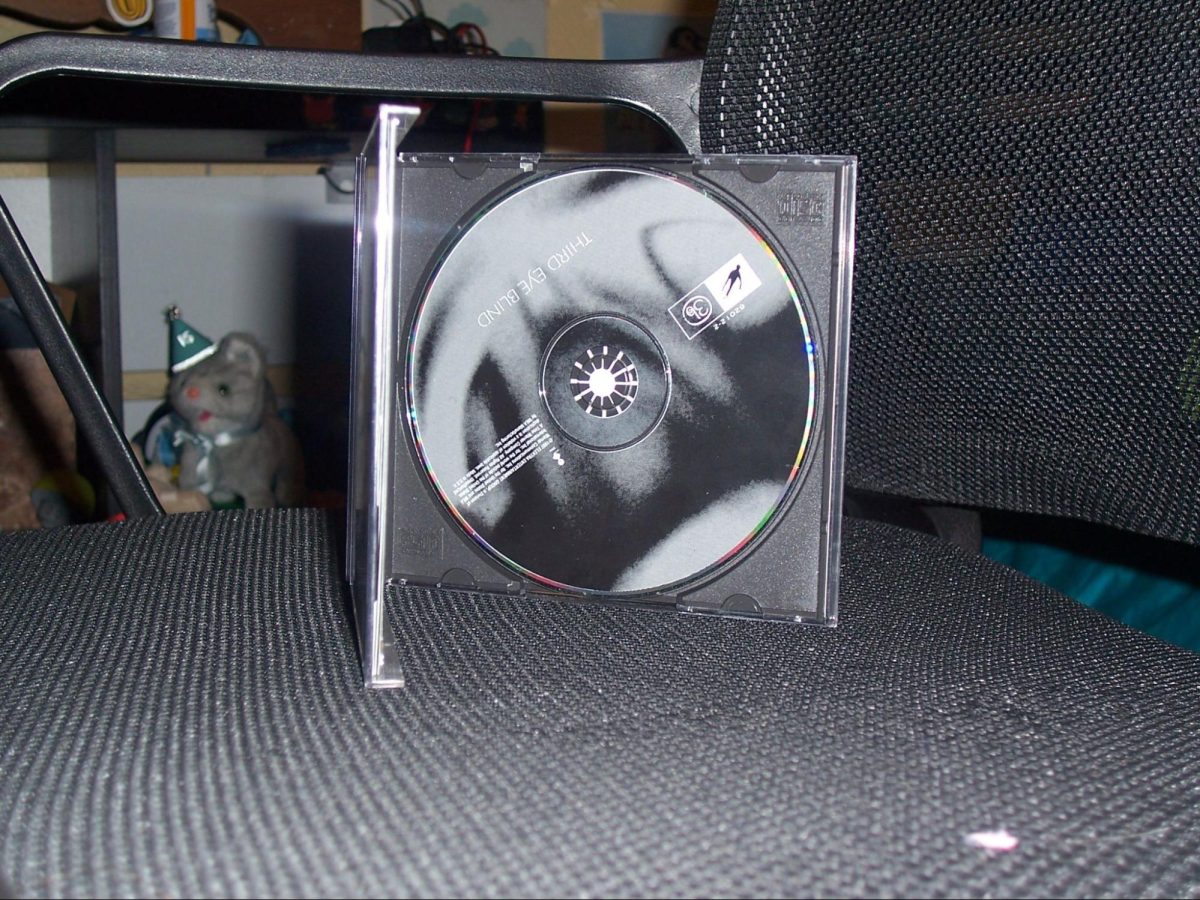If asked whether you were a feminist, what would you say? I asked around seventy BHS students through in person interviews and an online survey. There was a spectrum of answers, from quick no’s to ‘I don’t know’ to ‘probably’ to ‘absolutely’. Esther Bondarchuk (‘25) would say “I’m not a modern day feminist, but if you go back to what feminism was, I agree with the feminist term that we’re equal. Obviously. But not the way that it modernly is.” An anonymous student said no, “because their definition of feminism is probably something I don’t agree with. But I personally kind of believe myself to be a feminist, but I just don’t want people to get the wrong idea.” There seems to be a cloud of misunderstanding and fear surrounding feminism.
The word ‘feminism’ is used often, and most don’t know what it actually means. Feminism has been around for hundreds of years, and, according to many BHS students, it’s no longer defined by its definition. Instead, feminism is portrayed by any single representative who decides that they are a feminist. Feminism has been used to describe both an informed supporter of human rights, as well as a raging, self declared ‘man-hater’. This is what causes people to shy away from declaring themselves feminists: they can’t be sure which image will come to the mind of the person asking.
When surveying students at BHS for this article, I asked three questions. First, I asked if they considered themselves a feminist with no context given. I then asked what their definition of feminism was. Finally, I read the definition of feminism aloud, which is as follows: “[the] belief in and advocacy of the political, economic, and social equality of the sexes” (Merriam-Webster). I asked if they would consider themselves a feminist by that definition alone. I then allowed space for follow up comments and questions.
Out of the students surveyed, the most interesting thing, in my opinion, was feminism being mistaken for misandry. Misandry is the inverse of misogyny, or, an extreme prejudice against men. Most surveyees who responded that they didn’t identify as a feminist later explained that it was out of either fear or anger towards what feminism is widely perceived as today. Trinity Mincey-Buckley (‘24), said that she believed herself to be a feminist, mostly, but “[didn’t] love the title and affiliations with it.” Emily Morgan (‘26), explained Mincey-Buckley’s worries, saying that “it’s not that one [gender] needs to be more than the other, but that they are equal to each other.” Jayden Sheetz (‘24) agreed, saying “basically, all people of all orientations are equal to each other.”
An anonymous responder concluded that “[…] everyone has their own definition of feminism. And I guess people have changed it.” Another student said that whether you are a feminist or not “really [varies] depends on what the context is and who you are talking to.” Another person responded saying “I think feminism is different than it used to be. It went from equality to women over men. I fully support women and equality in every area. However, that isn’t what feminism is anymore.” Since feminism means something different to everybody, how are we supposed to know when we are and aren’t feminists, let alone advocate for it?
To many, feminism was not something they identified as upon my initial question. Some people seemed even angry when asked, and one person stated that they thought feminism was used to “weaponize females” without repercussions. Some asked when men would be advocated for. Responses like this were expected, and it was especially interesting to see some of these people physically relax as I read the dictionary definition. It provided them with certainty, at least in that moment, that I would not misunderstand them. One example of this was when I interviewed Aviral Mishra (‘26). When I asked him if he was a feminist, he immediately said no. I then read the definition, and he immediately appeared much more comfortable. Was he a feminist based on that definition? “Yeah, duh,” he said.
The point that I heard repeatedly was that feminism is not the belief that women are better than men, but that women are equal to men (gender equality, not gender superiority) To the vast majority: it was a no-brainer. “Who wouldn’t be a feminist [based on that definition]?” I was asked.
When looking at what feminism has come to be interpreted as, it is no surprise the negative air that comes along. Open instagram, google it, check twitter. You’ll be flooded with the message that women are victims. That women need to ‘conquer’ men, or be sexually promiscuous to liberate themselves and their bodies. That women have yet to be empowered; they need to wait for a handout, or a boost, versus recognizing the strength and power they inherently have. This feminism, what many students defined to be ‘modern feminism’, might be the reason for our doubts about what feminism truly is.
To provide a little context, first wave feminism, through the 19th and 20th century, was composed of abolitionists, activists, and suffragettes striving for legal action. Second wave feminism, beginning around 1960, fought for higher education, females in leadership positions, and reproductive rights. Third wave feminism, around the 90s, fought for further rights around women’s bodies, including birth control and abortion laws. However, fourth wave feminism seems to be composed of celebrities, social media figures and influencers, and everyone in between who has the ability and platform to spread whatever kind of information they want. With all of these definitions, how can someone possibly identify as a feminist?
Some people touched on the idea of modern feminism. The overall consensus I received was, according to an anonymous responder, “modern feminism, I would define as women being better than men, and men are stinky.” Although the wording may seem juvenile, it proved to be a very accurate representation of the perception BHS has of modern feminism. Someone who responded to my survey took the time to respond to the dictionary definition of feminism and explain their views: “modern day society has turned [feminism] on its head and made it a way to justify things […] that are not justifiable. If feminism was what it truly was meant to be, I would support it completely […] I believe that everyone regardless of gender or race should be equal. I do not agree with modernized feminism. But I do whole-heartedly believe that men and women were created equal by God and should be treated as such.” Another respondent seemed to come to the same conclusion I did, saying “it is interesting how people have such a negative idea of feminism when it really is just advocating equality. I think when some people think of feminism, they think of women attacking/being hateful towards men. Feminism is hopeful, not hateful, and isn’t as radical, for lack of a better word, as some people think it is.”
Many people acknowledged how hard feminism is to pinpoint. Over the years, the definition of feminism has fluctuated countless times. With a concept so elusive, controversial, and sometimes even painful to deal with, why is it still so relevant? I didn’t ask this question specifically, but many students took the time to elaborate on what feminism means to them. Sydney Guerrero (‘25) said that “empowering women in our society is crucial as for decades, most governing systems, and just systems in general, have been run by men.” An anonymous student said that “feminism is so I can go to the grocery store alone!” Norma Lin (‘24) elaborated, saying that feminism is necessary because “explicit law and implicit ‘social’ law are more closely intertwined than people want to believe. And just because legal rights might be ‘equal’ between genders, it doesn’t mean reform of societal perception and attitude is not necessary. Oppression is defined by power structures often much more mundane and less overt than, say, a restriction against the female vote. The past year’s overturn of Roe v. Wade exemplifies how easily mere ‘attitude’ threatens legal protections.”
If we can agree that the equality of genders is important, how can we go about it in the future without fear of misunderstanding? In order to effectively handle the topic of feminism, it is necessary to be informed and clear. If you are talking about feminism to someone, make sure that you have the same idea of feminism. If someone asks whether you are a feminist, take the time to make sure your definitions match up. One student said “there are lots of people out there that define feminism as something other than what is written in the dictionary […] I feel like many people who don’t find feminism to be very appealing, like myself, would find it more appealing knowing for a fact that you mean equality when you say ‘feminism’.” If we can take the time to ‘know for a fact’ what we mean when we use the word ‘feminism’, I believe that productive and positive action can take place around it.
The biggest thing this experience has taught me is that underneath all of our beliefs, fears, loves and passions, humans simply want to be understood. If we can feel this and provide this, we can start to move beyond simply understanding, and into the territory where feminism is not only understood, but applied and practiced.








